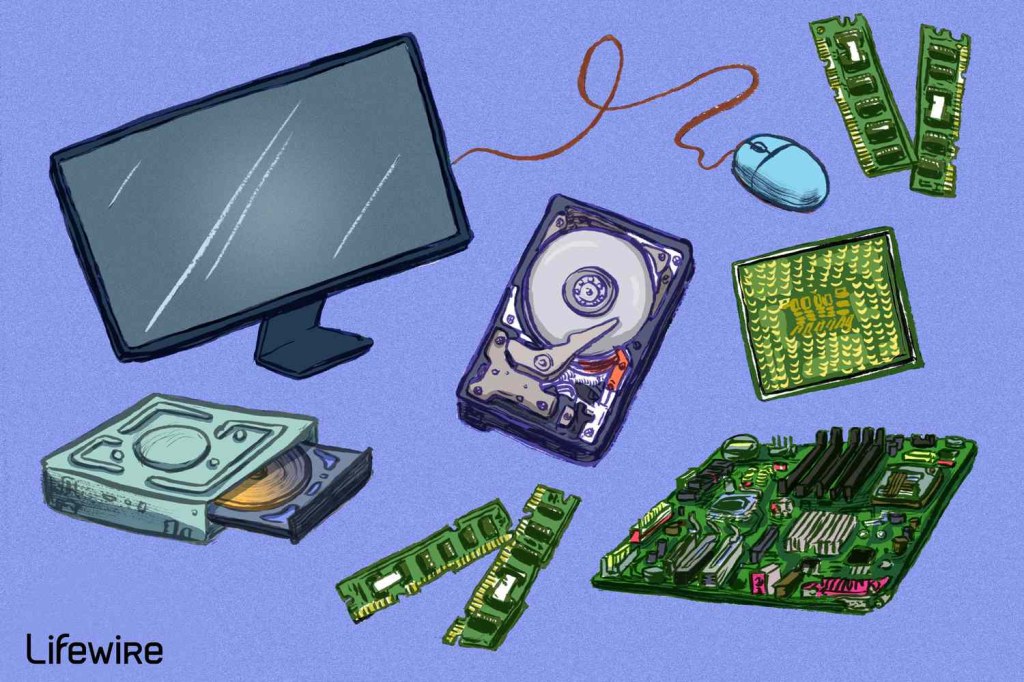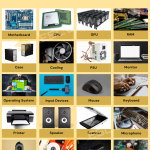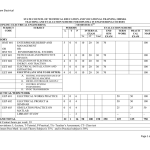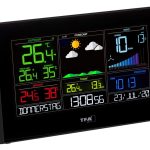The Ultimate Guide To Computer Hardware: Unleash The Power Of Click To Action!
Computer Hardware: Understanding the Basics for Maximum Performance
Introduction
Hello readers,
1 Picture Gallery: The Ultimate Guide To Computer Hardware: Unleash The Power Of Click To Action!

Welcome to our comprehensive guide on computer hardware. In this article, we will delve into the world of computer components, exploring their functionalities, advantages, and disadvantages. Whether you are a tech enthusiast, a professional seeking to upgrade your system, or a beginner looking to learn more, this article will provide you with the knowledge you need.

Image Source: lifewire.com
So, without further ado, let’s dive into the fascinating realm of computer hardware!
What is Computer Hardware? 🖥️
Computer hardware refers to the physical components that make up a computer system. It includes everything from the central processing unit (CPU) and memory modules to storage devices, input/output devices, and peripherals. Essentially, computer hardware is the backbone of any computing device, enabling it to perform tasks and execute instructions.
Understanding the different types of computer hardware is crucial for anyone looking to build or upgrade a computer, as it allows for better customization and optimization of system performance.
Who Uses Computer Hardware? 💻
Computer hardware is utilized by various individuals and entities across different sectors. It is essential for professionals such as software developers, graphic designers, and video editors who require powerful systems to handle complex tasks. Additionally, businesses rely on computer hardware to facilitate their day-to-day operations, from inventory management to customer relationship management.
Moreover, everyday users also benefit from computer hardware, whether it’s for personal use, entertainment, or educational purposes. From gaming enthusiasts to students completing assignments, computer hardware is an integral part of our modern lives.
When and Where Did Computer Hardware Emerge? ⏰🌍
The history of computer hardware can be traced back to the mid-20th century when the first electronic computers were developed. These early machines, such as the ENIAC and UNIVAC, were massive and relied on vacuum tubes and punched cards for processing and storage.
Over the years, advancements in technology led to the miniaturization of computer hardware components, making them more accessible and affordable. Today, computer hardware is ubiquitous, found in homes, offices, schools, and data centers around the world.
Why is Computer Hardware Important? ❓
Computer hardware plays a vital role in determining the overall performance and capabilities of a computer system. The choice of hardware components can significantly impact factors such as processing speed, multitasking ability, storage capacity, and graphics rendering.
Additionally, understanding computer hardware allows users to troubleshoot issues, perform upgrades, and make informed purchasing decisions. With the rapid advancement of technology, keeping up with the latest trends in computer hardware is essential for staying ahead in an increasingly digital world.
How Does Computer Hardware Work? 🛠️
Computer hardware operates on the principle of binary code, where data is represented using a combination of 0s and 1s. The central processing unit (CPU) acts as the brain of the computer, executing instructions and performing calculations.
Other hardware components, such as the motherboard, random access memory (RAM), and storage devices, work together to provide the necessary resources for the CPU to function efficiently. Input/output devices, such as keyboards, mice, and monitors, allow users to interact with the computer, while peripherals enhance its capabilities.
Advantages and Disadvantages of Computer Hardware 👍👎
Advantages:
1. Enhanced Performance:
High-quality computer hardware components can significantly improve system performance, allowing for faster processing speeds and smoother multitasking capabilities.
2. Customization:
Computer hardware offers the flexibility to customize and upgrade components according to individual needs and preferences, ensuring the system meets specific requirements.
3. Longevity:
Investing in reliable computer hardware can result in a longer lifespan for your system, reducing the need for frequent replacements and saving money in the long run.
4. Compatibility:
By understanding computer hardware, users can ensure compatibility between components, preventing issues that may arise from mismatched specifications.
5. High-Quality Graphics and Audio:
Advanced graphics cards and sound cards enable users to enjoy an immersive multimedia experience, whether it’s gaming, watching movies, or editing videos.
Disadvantages:
1. Cost:
High-performance computer hardware can be expensive, making it inaccessible for individuals on a tight budget or those who require powerful systems for professional use.
2. Compatibility Issues:
Mixing incompatible hardware components can lead to system instability, crashes, and other technical problems.
3. Complex Installation:
Installing certain hardware components, such as processors or graphics cards, may require advanced technical knowledge or professional assistance.
4. Power Consumption:
Power-hungry hardware components can significantly increase energy consumption, resulting in higher electricity bills and environmental impact.
5. Obsolescence:
As technology advances rapidly, computer hardware can quickly become outdated, necessitating frequent upgrades to keep up with the latest software requirements and advancements.
Frequently Asked Questions (FAQs) ❓❓❓
1. Can I upgrade my computer’s hardware on my own?
Yes, many computer hardware components can be upgraded by users with basic technical knowledge. However, caution must be exercised to ensure compatibility and avoid damaging the system.
2. How often should I upgrade my computer’s hardware?
The frequency of hardware upgrades depends on individual needs and budget. Generally, it is recommended to upgrade every 3-5 years to keep up with technological advancements.
3. What are the essential components of a gaming computer?
A gaming computer typically requires a powerful processor, a high-capacity graphics card, ample RAM, and fast storage devices to provide optimal performance for gaming applications.
4. What should I consider when buying computer hardware?
Factors to consider include compatibility with existing components, performance requirements, budget, and future upgrade possibilities.
5. Is there a difference between computer hardware and computer software?
Yes, computer hardware refers to the physical components, while computer software encompasses the programs and applications that run on the hardware.
Conclusion: Harness the Power of Computer Hardware!
In conclusion, computer hardware is the foundation of any computing device, enabling it to perform a wide range of tasks efficiently. By understanding the basics of computer hardware, users can make informed decisions, optimize system performance, and stay up to date with the latest technological advancements.
Whether you are a professional seeking a powerful workstation or an everyday user looking to upgrade your home computer, harnessing the power of computer hardware will undoubtedly enhance your digital experience.
Final Remarks
Friends, we hope this article has shed light on the fascinating world of computer hardware. The information provided here will empower you to make informed decisions and explore the vast possibilities offered by modern technology.
Please note that while we strive to provide accurate and up-to-date information, the rapidly evolving nature of technology may lead to certain details becoming outdated over time. Therefore, it is always advisable to consult relevant sources and seek professional advice when making significant hardware-related decisions.
Thank you for joining us on this journey through computer hardware. Stay curious, keep learning, and embrace the potential that technology holds!
This post topic: Electronics


